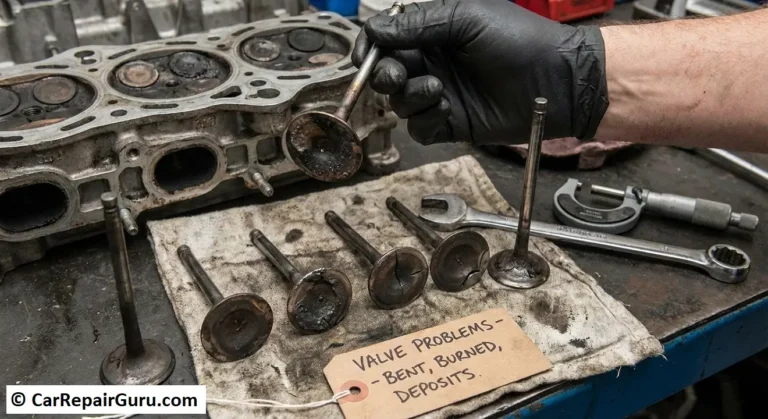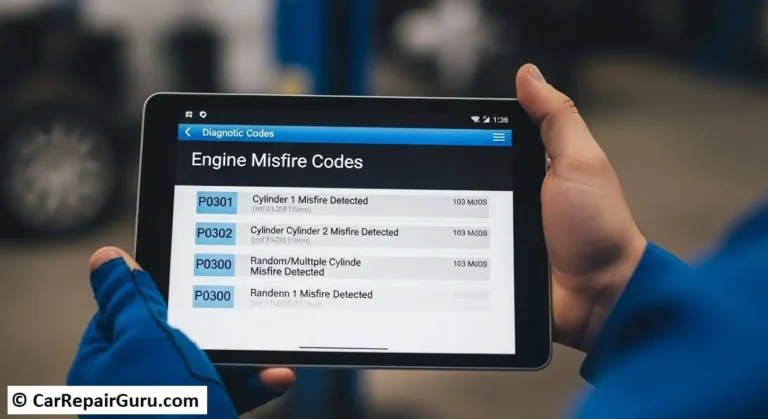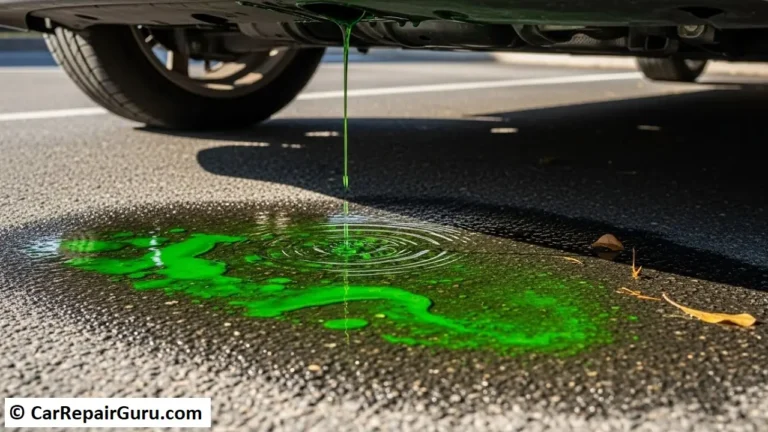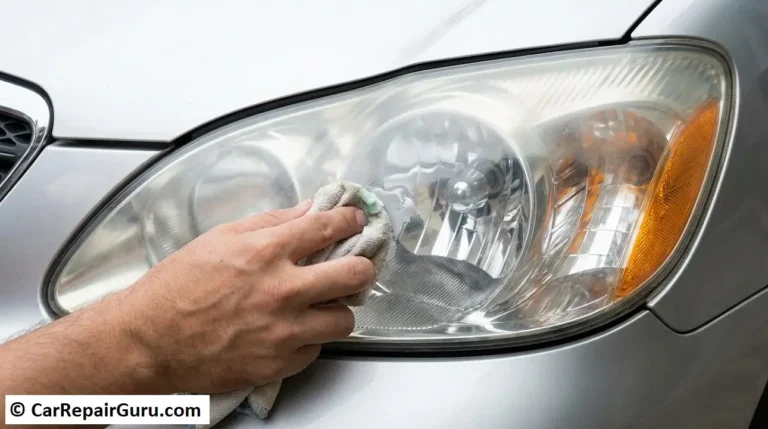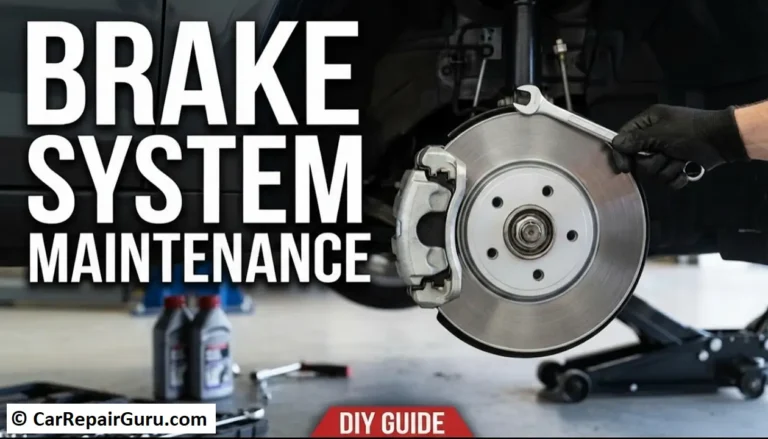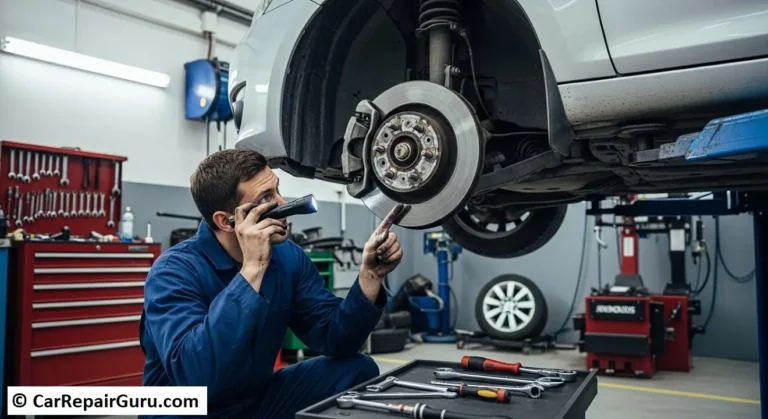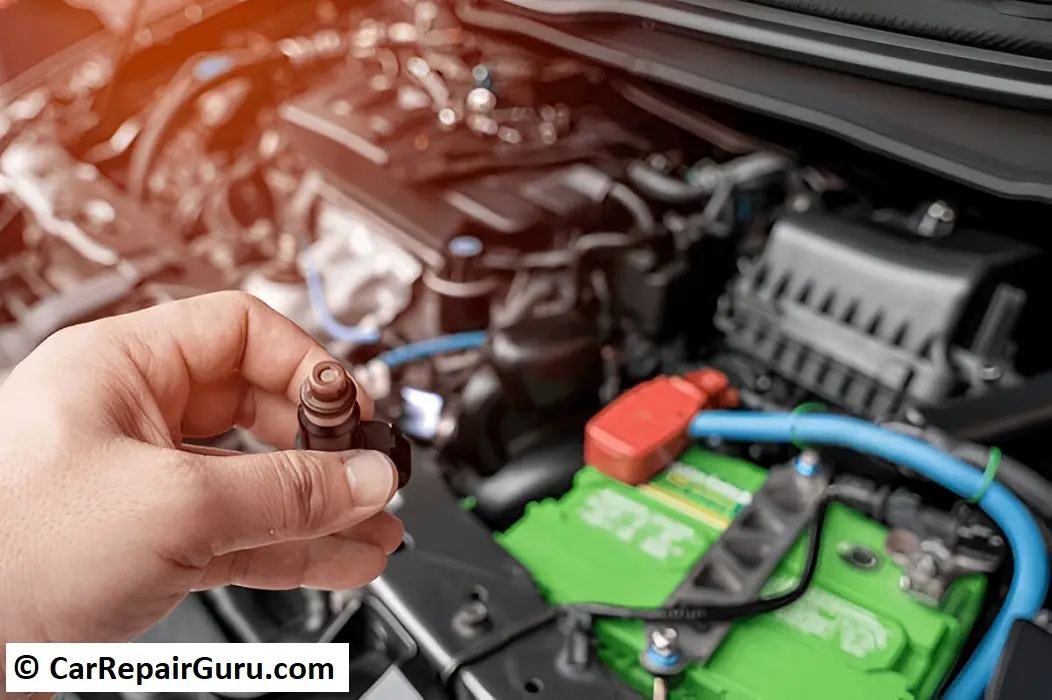
Is your car losing power or consuming more fuel than usual? You’re not alone—and your fuel injectors could be to blame.
Many drivers overlook these small but powerful components, yet fuel injectors play a critical role in your vehicle’s performance and fuel efficiency. So, what are fuel injectors exactly? In simple terms, they’re precision devices that spray fuel directly into the engine’s combustion chamber at just the right moment and pressure. That controlled spray ensures your engine runs smoothly, burns fuel efficiently, and delivers the power you expect.
When fuel injectors malfunction—whether due to clogging, wear, or poor-quality fuel—your car’s performance starts to dip. You might feel sluggish acceleration, rough idling, or even notice that dreaded drop in gas mileage.
Understanding how fuel injectors work and how to maintain them isn’t just for mechanics. It’s key to keeping your vehicle running at its best—and saving money at the pump.
- What Are Fuel Injectors?
- How Do Fuel Injectors Work?
- Types of Fuel Injectors
- 1. Throttle Body Injection (TBI)
- 2. Multi-Point Fuel Injection (MPFI)
- 3. Gasoline Direct Injection (GDI)
- Signs of a Bad or Clogged Fuel Injector
- 1. Engine Misfire
- 2. Poor Fuel Economy
- 3. Rough Idle or Stalling
- 4. Increased Emissions
- 5. Check Engine Light
- Common Causes of Fuel Injector Problems
- 1. Contaminated Fuel
- 2. Lack of Maintenance
- 3. Fuel Additives and Residue
- 4. Electrical Faults
- How to Maintain Fuel Injectors
- 1. Use Quality Fuel and Trusted Additives
- 2. Clean Injectors Periodically
- 3. Schedule Professional Inspections
- When Should You Replace Fuel Injectors?
- Typical Lifespan of Fuel Injectors
- Cost of Replacement
- DIY vs Professional Replacement
- Fuel Injectors vs Carburetors: What’s the Difference?
- Technology and Control
- Fuel Efficiency and Emissions
- Performance and Reliability
- Conclusion
- FAQ
What Are Fuel Injectors?
Fuel injectors are small but powerful components in your vehicle’s fuel injection system, responsible for delivering fuel directly into the engine’s combustion chamber. In a nutshell, their job is to spray a precise amount of fuel—at the right pressure and at the perfect moment—so the engine can burn it efficiently during combustion. This process is crucial for both power and fuel economy.
Before fuel injectors became standard, cars used carburetors to mix fuel and air. While carburetors were simpler in design, they weren’t nearly as precise, often leading to wasted fuel and inconsistent performance. As technology advanced, the switch to electronic fuel injection systems in the 1980s and 1990s revolutionized engine performance and fuel efficiency.
Today, almost every modern car runs on a fuel injection system, controlled by an onboard computer. This system monitors engine conditions and adjusts the fuel delivery in real time, helping your internal combustion engine run smoother, cleaner, and more reliably.
In short, without properly working fuel injectors, your car fuel system simply can’t function at its best.
How Do Fuel Injectors Work?
Fuel injectors are like precision sprayers for your engine. Their main job is to deliver atomized fuel—that’s fuel broken down into a fine mist—directly into the combustion chamber. Why mist? Because the smaller the fuel particles, the better they mix with air, and the more efficient the burn. This results in more power, cleaner emissions, and better fuel economy.
Modern vehicles use an electronic fuel injection system, which means that fuel injectors don’t work alone. They’re controlled by the Engine Control Unit (ECU)—your car’s brain. The ECU constantly monitors things like engine speed, air intake, temperature, and throttle position, then calculates how much fuel the engine needs at any given moment.
That’s where injection pressure and timing come in. Each injector opens and closes in milliseconds, spraying just the right amount of fuel at exactly the right time. High injection pressure ensures the fuel is properly atomized and reaches the combustion chamber with enough force to mix evenly with air.
So, fuel injectors aren’t just tiny valves—they’re smart, high-speed machines working in sync with your car’s brain to keep everything running smoothly and efficiently.
Types of Fuel Injectors
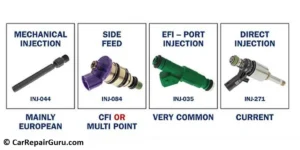
Not all fuel injectors are created equal. Over the years, manufacturers have developed different types of fuel injection systems to improve performance, efficiency, and emissions. Let’s break down the three main types: Throttle Body Injectors (TBI), Multi-Point Fuel Injectors (MPFI), and Gasoline Direct Injection (GDI).
1. Throttle Body Injection (TBI)
This older system places one or two injectors in the throttle body, which sits at the intake manifold’s entrance. It mimics the old carburetor layout but uses electronic fuel injection.
- Pros: Simple and inexpensive to maintain
- Cons: Less precise fuel delivery, poorer fuel atomization
2. Multi-Point Fuel Injection (MPFI)
Also called port fuel injection, MPFI assigns one injector to each cylinder, located right at the intake port.
- Pros: Better fuel atomization, improved fuel efficiency and power
- Cons: More components, slightly higher maintenance cost
3. Gasoline Direct Injection (GDI)
GDI injectors spray fuel directly into the combustion chamber, under very high injection pressure.
- Pros: Excellent efficiency, more power, and cleaner emissions
- Cons: More complex, prone to carbon buildup on valves
When comparing TBI vs MPFI or GDI systems, the difference usually comes down to precision and efficiency. As engines evolve, manufacturers continue to move toward direct fuel injection for maximum control over the combustion process.
Signs of a Bad or Clogged Fuel Injector
Fuel injectors might be small, but when they start acting up, the effects can be big—and hard to ignore. Here are some of the most common symptoms of bad fuel injectors or clogged injectors, and what they might mean for your engine.
1. Engine Misfire
When an injector fails to deliver fuel properly, one or more cylinders may misfire. You might feel a jerking motion, especially during acceleration or idling.
2. Poor Fuel Economy
If your injectors are leaking or spraying unevenly, your engine could be burning more fuel than necessary—leading to more frequent trips to the gas pump.
3. Rough Idle or Stalling
Clogged injectors can disrupt the air-fuel mixture, causing your engine to idle roughly or even stall unexpectedly, especially at stoplights or during startup.
4. Increased Emissions
Unburnt fuel due to inefficient spraying can cause higher levels of emissions. This might lead to failed emissions tests and more pollution.
5. Check Engine Light
Modern vehicles are smart. If something’s off with your fuel injection system, the ECU will usually trigger the check engine light, signaling potential engine issues.
If you notice any of these warning signs, don’t ignore them—your fuel injectors may need cleaning, repair, or replacement.
Common Causes of Fuel Injector Problems
Fuel injectors are built for precision, but they’re not immune to wear and tear. Over time, several factors can lead to fuel system problems and injector failure. Understanding these common causes can help you prevent costly repairs.
1. Contaminated Fuel
One of the biggest culprits behind dirty fuel injectors is poor-quality or contaminated fuel. Dirt, water, or other impurities can clog the injector’s fine nozzles, disrupting fuel spray and engine performance.
2. Lack of Maintenance
Skipping routine maintenance—like fuel filter replacements or system cleanings—allows deposits to build up inside the injectors. Eventually, this leads to restricted flow or total blockage.
3. Fuel Additives and Residue
Not all fuel additives are created equal. Some low-grade additives can leave behind sticky residues that coat injector tips. Over time, this buildup can affect spray patterns and fuel atomization.
4. Electrical Faults
Fuel injectors rely on electrical signals from the ECU to operate. Wiring issues, bad connectors, or faulty sensors can cause injectors to misfire, underperform, or fail completely.
Staying on top of these issues helps ensure your injectors—and your entire engine—stay in top shape.
How to Maintain Fuel Injectors
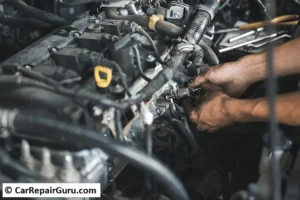
Taking care of your fuel injectors doesn’t require a mechanical degree—just some smart habits and regular upkeep. A little fuel injector maintenance goes a long way in keeping your engine running smoothly and efficiently.
1. Use Quality Fuel and Trusted Additives
Start with the basics: always fill up with high-quality fuel from reputable stations. Clean fuel helps reduce deposits and keeps injectors in better shape. You can also occasionally use a reputable injector cleaner additive designed to remove light buildup and improve fuel atomization.
2. Clean Injectors Periodically
Even with good fuel, injectors can get dirty over time. You have a few cleaning options:
- Fuel system cleaners added to your tank
- Manual cleaning, where injectors are removed and cleaned individually
- Ultrasonic cleaning, a professional method that deeply cleans stubborn clogs
3. Schedule Professional Inspections
During routine service visits, ask your mechanic to inspect the injectors. A trained eye can spot early signs of wear, leaks, or electrical issues before they become expensive problems.
By taking a few preventative steps, cleaning fuel injectors and keeping them healthy becomes easy—and your car will reward you with better performance and fuel savings.
When Should You Replace Fuel Injectors?
Even with good maintenance, fuel injectors don’t last forever. So how do you know when it’s time for a replacement?
Typical Lifespan of Fuel Injectors
Most modern fuel injectors are built to last between 80,000 to 100,000 miles, though some can go even longer with proper care. However, if you’re experiencing consistent engine misfires, poor fuel economy, or injector-related trouble codes, it’s a sign they might be on their way out.
Cost of Replacement
The fuel injector cost varies depending on your vehicle type. On average:
- Parts only: $50 to $150 per injector
- Full replacement (parts + labor): $300 to $800 for a set
Keep in mind that performance or direct injection systems like GDI can cost more.
DIY vs Professional Replacement
DIY fuel injector replacement is possible if you’re comfortable working on engines and have the right tools. However, injectors are often tucked under intake manifolds or connected to high-pressure lines—so it’s not always beginner-friendly. For most drivers, a professional job ensures safety and proper calibration.
If your injectors are beyond cleaning or consistently failing, replacing fuel injectors may be the most reliable solution to restore your car’s performance and efficiency.
Fuel Injectors vs Carburetors: What’s the Difference?
If you’ve ever driven an older car, you might’ve heard about carburetors. But in today’s vehicles, they’ve been almost entirely replaced by fuel injectors—and for good reason. Let’s break down the differences.
Technology and Control
Carburetors rely on mechanical parts to mix air and fuel before it enters the engine. This system works based on pressure differences and vacuum, but it lacks precision.
In contrast, fuel injectors are part of a modern fuel system controlled electronically. They deliver the exact amount of fuel needed, at the exact time, based on real-time engine data.
Fuel Efficiency and Emissions
Because fuel injectors offer more control, they provide much better fuel efficiency and cleaner combustion. Carburetors often waste fuel, especially during cold starts or rapid acceleration.
Performance and Reliability
Modern engines with fuel injectors run smoother, start quicker, and respond better to throttle changes. They also adapt better to altitude and temperature changes, something carburetors struggle with.
In short, when comparing carburetors vs fuel injectors, injectors win in every category: efficiency, performance, reliability, and emissions. That’s why nearly every car built since the mid-1990s relies on electronic fuel injection for optimal engine performance.
Conclusion
Fuel injectors may be small, but their impact on your car’s performance and fuel efficiency is huge. Healthy injectors ensure your engine runs smoothly, burns fuel efficiently, and keeps emissions low. Ignoring problems like clogged or faulty injectors can lead to misfires, rough idling, and costly repairs down the line.
That’s why regular fuel injector maintenance—like using quality fuel, periodic cleaning, and professional inspections—is key to keeping your vehicle in top shape. Taking care of your injectors not only saves you money but also improves your driving experience.
FAQ
Q1: How long do fuel injectors last?
Most fuel injectors can last between 80,000 to 100,000 miles, sometimes longer with proper care. Regular maintenance helps extend their lifespan.
Q2: Can I drive with a bad fuel injector?
It’s possible but not recommended. A bad or clogged injector can cause engine misfires, poor fuel economy, and increased emissions. Driving like this may lead to more serious engine damage.
Q3: Are fuel injector cleaners effective?
Yes, quality fuel injector cleaners can help remove light deposits and improve performance when used regularly. However, severe clogs or mechanical issues may require professional cleaning or replacement.
Q4: What’s the cost of professional injector cleaning?
Professional cleaning typically costs between $50 to $100 depending on your vehicle and location. This service often uses ultrasonic cleaning to thoroughly remove stubborn deposits.
Q5: How can I tell if my fuel injectors need replacement?
Signs include persistent engine misfires, rough idling, poor fuel economy, and the check engine light staying on even after cleaning. If problems continue, replacement might be necessary.
